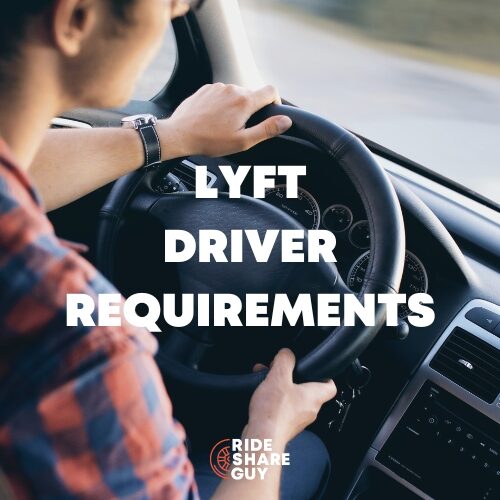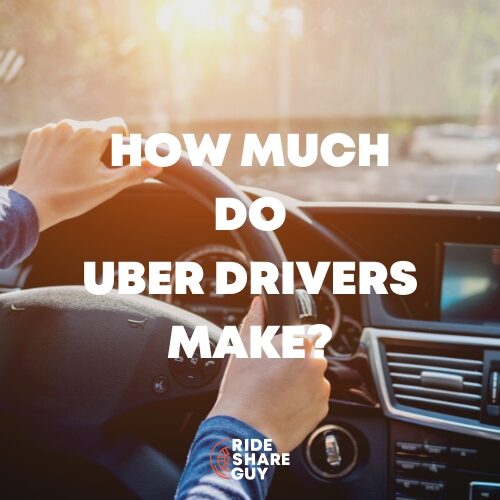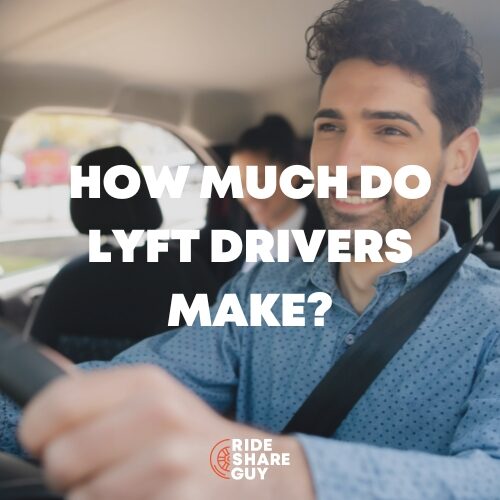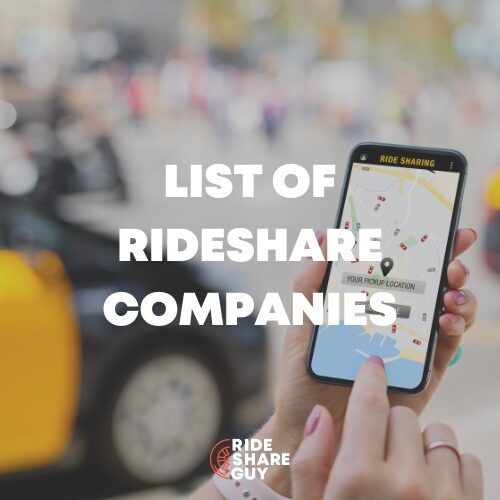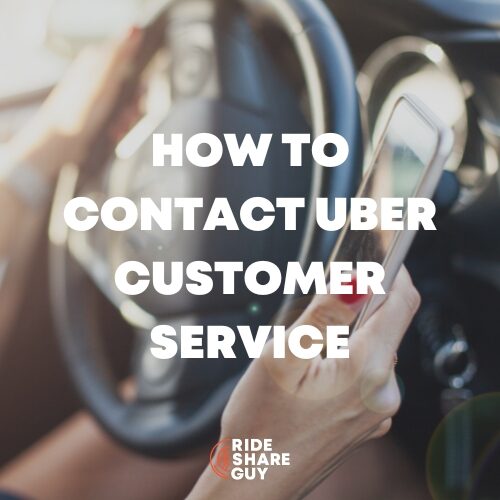Uber and Lyft may dominate most of the rideshare market, but here at The Rideshare Guy, we always say you need to diversify which companies you drive and deliver for – so finding the best Uber and Lyft alternatives is essential.
While many of the companies we’re going to discuss are smaller than the more well-known competition, you may find you can make more money behind the wheel driving for a smaller company than you can with the big guys.
Top 10 Uber and Lyft Alternatives
Check out some of the best Uber and Lyft alternatives below:
1. Curb
Formerly Verifone Taxi Systems, Curb is a company with experience with taxi services and the for-hire industry.
Curb features a “Pair & Pay” feature that allows riders to use the Curb ridesharing app to pay for their taxi ride.
For drivers, there is a digital meter and driver app where you go online and start your meter as a taxi driver.
Curb is available in most major U.S. cities, including New York City, Boston, Philadelphia, Chicago, Los Angeles, Las Vegas, Miami, and Washington, DC. They feature 100K+ drivers on their network with 10M+ trips per month.
2. Wingz
Wingz may sound like it’s a ride-hailing service just for airport rides, but they offer non-airport transportation services, commuting, and flat rates (no surge pricing) based on distance and time. They also offer delivery services.
Wingz encourages passengers to have a list of favorite drivers they can request over and over again. Rides are booked in-app, via their website, or through a toll-free number, giving passengers more options for finding a ride. They also let the drivers choose their own schedule and accept the rides they want to give.
Their requirements are you must be 21 years or older, have a personal/commercial driver’s license and auto insurance, have a 4-door vehicle that is five years or more recent and is in excellent condition, and have a smartphone for using the Wingz driver mobile app.
They have a background check/screening process that all drivers must pass, as well as in-person and online orientation. Drivers also have to complete a knowledge test and disability training.
Wingz currently serves the airports in northern California, southern California, Texas, Florida, Seattle, and Portland. For more information on any of these, check out their help section.
3. Flywheel
Flywheel is geared toward taxi drivers and fleets. Basically, it morphs taxis into Ubers. The Flywheel taxi app offers TaxiOS technology to cab owners to replace the outdated meters, dispatch, navigation systems, and credit card readers.
In addition, Flywheel can act as a bridge between restaurants and drivers. It allows restaurants to manage their customer and food delivery schedules and even allows a restaurant to see where the delivery is in real-time.
Flywheel’s tech runs on a cloud-enabled smartphone. The startup was piloted in San Francisco, and after that successful run, it opened up to all of California. The website now states that Flywheel is certified in all major U.S. cities.
Similar to the Uber or Lyft app, the Flywheel taxi booking app allows drivers to be in control of their schedule—drive when you want to, as often as you want. It also trains its drivers about processes and guidelines as well as gives drivers alerts about nearby pick-ups.
Flywheel offers what they call DirectPay where you have your earnings sent directly to your debit card so you can receive cash quickly.
4. Arro
ARRO Driver app is for taxi drivers and boasts fast earnings with payouts as soon as the next day and higher earnings due to lower fees. They also provide free training and tips for their drivers.
It appears you can act as a taxi where you do street hails or be part of the Access-A-Ride (AAR) program. You must be ADA certified to be approved for the AAR program as a driver.
ARRO claims that as an AAR program driver, you can accept more trips and get more offers, the trips are sent directly to your in-vehicle equipment, and you get step-by-step instructions to reach your pick-up point and drop-off area—which are provided upfront to you, so you are fully aware of the trip before accepting the offer.
Both AAR and e-hail drops are priced upfront, so you will see what you are earning with your fare.
ARRO is currently available in Austin, Boston, Chicago, Houston, New York, Miami, San Francisco, London, and more.
5. HopSkipDrive
HopSkipDrive hires what they call CareDrivers who can earn up to approximately $40 per hour plus bonuses. Requirements for CareDrivers include five years of caregiving experience, a good driving record, passing a multi-agency background check with fingerprinting, being at least 23 years old and having a 4-door vehicle no more than 10 years old (2012 or newer).
According to a representative of HopSkipDrive: “We are a technology-enabled transportation solution for families, K-12 schools, non-profits, and kid-based businesses and driven over 2.5 million safe miles.”
Because of their policy about needing five years of caregiving experience, HopSkipDrive is not for everyone, but it’s a great alternative for caregivers who are looking to do a ridesharing service.
They are currently servicing these areas: Northern California, Southern California, Colorado-Front Range, Virginia/D.C./Maryland, Houston, Dallas/Fort Worth, Arizona, Washington, Pennsylvania, Wisconsin, and Las Vegas.
They also have child transportation competitors, such as Kidcaboo, that we’ll cover next.
6. Kidcaboo
The Kidcaboo business model is similar to HopSkipDrive and caters to busy parents who need help with the transportation of their children.
Driving Nannies, as the company calls its drivers, have extensive childcare experience and must pass a rigorous interview and onboarding process. In addition, candidates must have a clean driving record and pass a personal background check.
If you apply, you should expect to undergo several interview rounds and reference checks. Your car will also have to pass inspection as well.
Kidcaboo currently operates in Texas, Arizona, North Carolina, South Carolina, Nebraska, Pennsylvania, Virginia, Florida, and Connecticut.
7. Scoop
Scoop is advertised as a carpooling service for co-workers. Trips are scheduled, and you set when you’re available and which direction you’re traveling.
With Scoop, their algorithm finds the most efficient trip based on route, nearby carpoolers, carpool lanes, and more.
They have vehicle history checks done on every driver and feedback is given on every trip. Like the other options listed here, payment is within the app, so you don’t have to worry about cash or declined cards.
It’s available for companies to use as part of a carpooling program within the business to help get their workers to and from the office. The app is available for Android and iOS.
Scoop is currently available in the San Francisco Bay Area, Seattle Metro, Portland, Detroit Metro, Tempe, Phoenix, Reno, and Los Angeles.
8. Roadie
Roadie is a little different than the other apps in our review because rather than transport passengers, you make local and long-distance deliveries.
Owned by UPS, Roadie is focused on urgent same- and next-day deliveries of a variety of goods and orders, from lost luggage to large pieces of furniture.
While Roadie might not provide consistent work – it will depend on what deliveries are needed in your area or region – it might be a great side hustle in addition to driving for more widespread and consistent rideshare companies. Say you’re taking a road trip… you can check Roadie to see if there are any needs along your route and make some extra money while you’re vacationing!
Roadie has minimal requirements for sign-up. You just need to be 18 years of age and have a smartphone and car insurance. Roadie doesn’t have any restrictions on vehicle make and model, so older vehicles are okay. And the company won’t require a car inspection or background check. You won’t have to ever do any heavy lifting up stairs or move items into houses – and you’ll never be picking up and dropping off passengers – so the service is pretty hands-off.
Pay depends on the item you are carrying and the distance but the average pay per delivery is $13. You will get paid weekly via direct deposit and once you’ve worked for more than a week and completed five deliveries, you can enroll in an instant payment option. However, use of that service will cost you $2 each time you request payment.
Roadie is available throughout the U.S., so if you’re open to longer-distance drives or live in a larger metropolitan area, you may be able to pick up some decent hours with the company.
9. Safr
If you are a woman and the ridesharing gig seems a little scary to you, Safr could be a good alternative. This app-only (no website) company is designed to make women feel safe by catering to female passengers (although anyone can use the app).
Beyond safety, Safr functions as a female empowerment company by hiring a substantially higher number of female drivers.
All drivers – male and female – must be thoroughly vetted to meet the “Safr Standard,” which ensures riders won’t have to feel nervous or intimidated when riding alone. The company also uses facial recognition software and live video feeds in vehicles.
You must be at least 21 years of age to drive for Saft, have a valid social security number and have had an active driver’s license for at least three years. You also need to have a late-model (no older than 15 years) 4-door vehicle that seats at least five people (counting the driver). If you’ve had a car accident in which you were at fault within the last year, you won’t be eligible to drive for Safr.
Safr is currently available in Atlanta, Boston, Dallas, Orlando, San Francisco, and Washington, D.C.
10. Waave
On Waave’s website, it says that drivers earn more with fixed fares using their technology. It was built in New York City and is an independent company with the goal of making the taxi industry more efficient.
They state that your earnings can be in your bank account as soon as the next day, and every payment is guaranteed.
Driver Cooperatives
The Drivers Cooperative is a co-op; it is member-based, and all members are part owners. A perk of being a member-owner is that they will elect the Board of Directors and have a share in profits. It’s free to join The Drivers Cooperative.
Has a driver-owned cooperative been tried before? Are other cities trying the same? It’s hard to determine if the ones I found are legitimate or not, but here’s what I discovered:
- There’s a rideshare cooperative in San Francisco simply called Ride.
- Based out of Washington is a Ridefair platform that encourages people to start a Ridefair-powered co-op in their city if one is not yet available.
- Grand Rapids, MI has a co-op called People’s Ride.
Keep an eye out for cooperatives popping up in your city, but make sure you do your due diligence. Some cooperatives have grand ambitions but, years later, have still never gotten off the ground.
Use your best judgment and determine their goals and values before signing up.
Which Uber and Lyft Alternatives are Best For You?
There are many options out there, depending on where you live. Just keep in mind, not all options are going to look like Uber and Lyft—for better and for worse.
However, it’s good to know what your other options are. In 2016, both Uber and Lyft left Austin, Texas, because of laws put into place that would force them to fingerprint potential drivers for background checks.
Yes, Uber and Lyft are back now, but I doubt any drivers from 2016 will ever forget the feeling they had when they woke up and couldn’t do their jobs, and I’m sure some no longer trust these two companies at all.
Even if Uber and Lyft remain in your cities, check out these Uber and Lyft alternatives and if they’re available in your city. You may find they pay more than Uber or Lyft!
